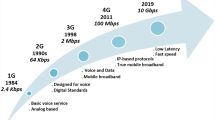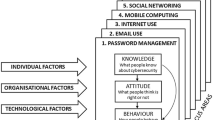Abstract
There is a scarcity of scientific literature about the characteristics of the control work and its demands in the critical domain of telecommunication. The motivation of the paper is to shed light on the context and content of the human operators’ work in maintaining the dependability of telecommunication networks. A case study was accomplished in a large telecommunication company. The research focused on clarifying the impact of human operators on the dependability of telecommunication network. Interviews confirmed earlier assumption among members of the communication network operations (CNO) community that the human operator has an important impact on the network dependability. Specific sources of errors in daily work were identified and strategies of avoiding erroneous action were described. By utilising core-task analysis and modelling approach, we defined generic control demands of the CNO work domain, and operators’ ways of coping with these demands. Regarding human dependability of communication network operations, a combination of resilient and proactive ways of acting is needed. Due to daily changes in the network and the continuous increase of its complexity, specifically change management on both organisational and work practice levels was required. The study is restricted to one Finnish telecommunication company, which limits possible empirical generalisation of the findings.


Similar content being viewed by others
References
Avizienis A, Laprie J-C, Randell B, Landwehr C (2004) Basic concepts and taxonomy of dependable and secure computing. IEEE Trans Dependable Secure Comput 1(1):11–33
Charmaz K (1995) Grounded theory. In: Smith JA, Harré R, Van Langenhove L (eds) Rethinking methods in psychology. Sage, London, pp 27–49
de Bruijne M, van Eeten M, Roe E, Schulman PR (2006) Assuring high reliability of service provision in critical infrastructures. Int J Crit Infrastruct 2(2/3):231–246
Engeström Y (1987) Expansive learning. Orienta, Jyväskylä
Kraemer S, Carayon P (2007) Human errors and violations in computer and information security: the viewpoint of network administrators and security specialists. Appl Ergon 38:143–154
Norros L (2004) Acting under uncertainty. The core-task analysis in ecological study of work (vol. Publications 546). Espoo: VTT, Available also URL: http://www.vtt.fi/inf/pdf/
Norros I, Kuusela P, Savola P (2008) A Dependability case approach to the assessment of IP networks. Paper presented at the the first international workshop on dependability and security in complex and critical information systems (DEPEND2008)
Perrow C (1984) Normal Accident. Living with high-risk technologies. Basic Books, New York
Reason J (1990) Human error. Cambridge University Press, Cambridge
Reiman T (2007) Assessing organizational culture in complex sociotechnical systems. Methodological evidence from studies in nuclear power plant maintenance organizations. Unpublished PhD, University of Helsinki/VTT Publications 627, Helsinki and Espoo
Schulman PR (1993) The analysis of high reliability organisations: a comparative framework. In: Roberts KH (ed) New challenges to understanding organisations. Macmillan Publishing Company, New York, pp 33–53
Schulman PR, Roe E, van Eeten MJG, de Bruijne M (2004) High reliability and the management of critical infrastructures. J Conting Crisis Manage 12(1):263–280
Su R, Yurcik W (2005) A survey and comparison of human monitoring of complex networks: University of Illinois Urbana-Champaign, National Center for Computing Applications
van Eeten MJG, Roe D, Schulman PR, de Bruijne M (2006) The enemy within: system complexity and organizational surprises. In: Dunn M, Mauer W (eds) International CIIP handbook, vol II. Zürich: Center for Security Studies, ETH Zürich, Zürich, pp 89–110
Verbist S (2002) Reliability of mobile communications under rapidly changing conditions (confidential report). Delft University of Technology, Delft
Yamamura T, Yata K, Yasushi T, Yamaguchi Y (1989) A basic study on human error in communication network operation. IEEE Xplore, Downloaded 23 June 2009
Author information
Authors and Affiliations
Corresponding author
Rights and permissions
About this article
Cite this article
Norros, L., Norros, I., Liinasuo, M. et al. Impact of human operators on communication network dependability. Cogn Tech Work 15, 363–372 (2013). https://doi.org/10.1007/s10111-012-0225-8
Received:
Accepted:
Published:
Issue Date:
DOI: https://doi.org/10.1007/s10111-012-0225-8




